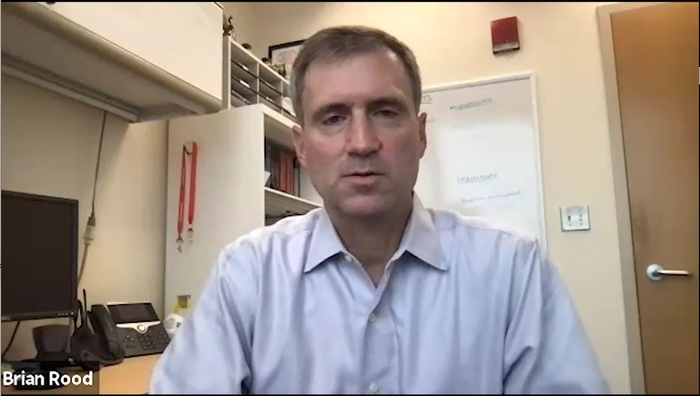Children’s National Hospital experts developed a new approach that discovered unique proteins in an individual tumor’s cells, which then helped scientists generate personalized T cells to target and kill tumors, according to a pre-clinical study published in Nature Communications.

Credit: Children’s National Hospital
Children’s National Hospital experts developed a new approach that discovered unique proteins in an individual tumor’s cells, which then helped scientists generate personalized T cells to target and kill tumors, according to a pre-clinical study published in Nature Communications.
This effort is the first to create a new workflow for neoantigen identification that incorporates both genetic sequencing and protein identification to create a personalized treatment for medulloblastoma in children, a common malignant brain tumor. Given these promising findings, the researchers are now designing a phase I clinical trial slated to open in 12-18 months.
“This work is an incredibly exciting advancement in personalized medicine. It will allow us to treat patients with a novel T cell therapy that is developed for each individual patient to specifically attack and kill their tumor,” said Catherine Bollard, M.D., M.B.Ch.B., director of the Center for Cancer and Immunology Research at Children’s National and co-senior author on the paper. “This treatment will offer a potential option for children with hard-to-treat brain tumors for which all other therapeutic options have been exhausted.”
First, the researchers sequenced the DNA of small tissue samples while studying its complete set of proteins that influence cancer biology — also named a “low-input proteogenomic approach” by the authors. After analyzing the empirical data, which shies away from the commonly used predictive models, the researchers developed a T cell immunotherapy that targets the tumor’s unique proteins and allows the T cells to distinguish between healthy cells and tumor cells. This means that Rivero-Hinojosa et al. managed to merge two research fields, proteogenomics and immunotherapy, and lay the groundwork for personalized, targeted T cell therapies to treat children with brain tumors.
“Neoantigen discovery techniques have either been dependent upon in silico prediction algorithms or have required a significant amount of tumor tissue, making them inappropriate for most brain tumors,” said Brian Rood, M.D., medical director of Neuro-oncology and the Brain Tumor Institute at Children’s National. “This neoantigen identification pipeline creates a new opportunity to expand the repertoire of T cell-based immunotherapies.”
Tumor cells have damaged DNA that create mutations during the repair process because they do not do a good job at maintaining their DNA fidelity. The repairs therefore create aberrant DNA that codes for proteins that were never intended by the genetic code and, consequently, they are unique to the individual’s tumor cells.
“We developed a new filtering pipeline to remove non-annotated normal peptides. Targeting antigens that are completely specific to the tumor, and expressed nowhere else in the body, will potentially increase the strength of tumor antigen-specific T cell products while decreasing the toxicity,” said Samuel Rivero-Hinojosa, Ph.D., staff scientist at Children’s National and first author of the study.
Once the experts identified these unique peptides, they used them to select and expand T cells, which showed specificity for the tumor specific neoantigens and the ability to kill tumor cells. The next step is to conduct a clinical trial in which a patient’s own T cells are trained to recognize their tumor’s unique neoantigens and then reinfused back into the patient.
From an immunotherapy standpoint, tumor specificity is important because when clinicians treat patients with T cell therapies, they want to make sure that the T cells directly target and kill the tumor and will not cause devastating harm to healthy cells. This paper demonstrated that it may be possible to create a better efficacy and safety margin with this new approach.
In the past five years, under the leadership of Dr. Bollard, the Center for Cancer and Immunology Research at Children’s National has advanced the scientific knowledge in preclinical and clinical settings. The center discovered a signaling pathway that can be hijacked to prevent brain tumor development, and further advanced translational research with several key first-in-human studies that utilized novel cell therapies to treat cancer and life-threatening viral infections.
Journal
Nature Communications
DOI
10.1038/s41467-021-26936-y
Article Title
Proteogenomic discovery of neoantigens facilitates personalized multi-antigen targeted T cell immunotherapy for brain tumors
Article Publication Date
18-Nov-2021




